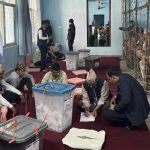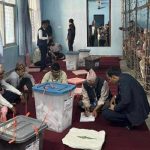Kathmandu: Scrolling through social media platforms has become a habitual part of daily life in today’s digital age, In this digital era of technology, almost 63 % of the world’s population uses social media. Social media has permeated every corner of the globe. From facilitating personal connections to serving as a pivotal marketing platform for businesses, social media’s reach is incomparable. It has been continuing dominance by emphasizing the platform’s adaptability and flexibility in an ever-evolving digital landscape.
The fancy filters and carefully written captions on social media might look great, but there are a lot of problems and challenges behind the virtual appearance. People who show off their lives online can make it seem like everything is perfect, but that’s not always true. A still and a reel on social media platforms is not able to express the reality of the people. Without knowing it, people start to compare their lifestyles with others. Social media posts make people feel like they’re not good enough and start to criticize themselves.
According to the American Academy of Child and Adolescent Psychiatry (AACAP), 95% of teenagers in the USA are active social media users. There are many social media users, about 40%, whose age range is between 8 and 12 years old, despite 13 being the minimum age requirement for using social media platforms. It is their productive age but early exposure to the virtual world can shift their mindset and direction. The impression of social media can negatively trigger the curious minds of teenagers. While imposing the lifestyle of others, youths might even choose the wrong path to success. Along with the social media engagements, the rate of anxiety and depression seems to be skyrocketing.
The impact of social media flexing on youth and teenagers, especially those living in developing countries like Nepal, is profound and concerning. When individuals, such as family members, friends, cousins, or loved ones who have already migrated to developed countries post photos and videos showcasing their glamorous lifestyles—such as driving cars, enjoying beach vacations, flaunting expensive gadgets, and wearing stylish outfits—it creates an unrealistic standard of living that can heavily influence the perceptions and aspirations of youth in developing countries.
From Partition to Present: The Israeli-Palestinian Scrape
Even in Nepal, the early exposure of children to these platforms is creating risks for their growth. In the case of youths, they are compelled to compare their lifestyle with their abroad friends and categorize themselves as underperformer and underachiever. Seeing posts of their close ones leads young people in Nepal to believe that the only path to happiness and success is by emulating the lifestyles depicted on social media. They may feel pressure to escape their current reality and strive to attain similar luxuries and experiences, often through unrealistic means. This can lead to feelings of inadequacy, dissatisfaction, and even depression when they are unable to achieve these lofty goals.
It is the effect of social media flexing that puts the seed of comparison in the minds of youths. Although it seems like a normal appearance continuous popping of the bragged and show-off contents, people start developing an inferiority complex. This comparison often results in feelings of being a “loser” or not having accomplished anything in life. It can intensify existing insecurities and fuel a sense of directionlessness and hopelessness about the future. This can be especially challenging for young people who are already grappling with socioeconomic barriers and limited opportunities in their home countries.
Moreover, when youth from Nepal do manage to travel abroad, especially for study purposes, they may experience a stark contrast between the expectations fueled by social media and the reality of their new lives. Instead of the glamorous lifestyle they envisioned, they may face challenges such as financial strain, cultural adjustment, and academic pressure. Many youths even get stuck and feel trapped, when they are unable to meet their expectations due to a lack of reality checks of Nepali youths. This dissonance between expectation and reality can exacerbate feelings of disillusionment and depression, ultimately in some cases leading to tragic outcomes such as suicide.
Additionally, social media itself has been a center for either setting a trend or following a trend. And social media flexing is playing a crucial role in it. It seems like going abroad has also become a trend for Nepali. It has become a trend for Nepali youths to go abroad for studies and get settled in foreign countries. About 55000 students received permits to acquire education in foreign lands. And if not all but, most of them might have already left the nation.
But the question arises-Are they happy? Are they able to cope with the gap between their expectations and reality? Can they adapt themselves to the environment to post a happy picture on social media? The migrated students and other youths for sure will face a state dilemma after reaching their destination. This is a teaser of how social media flexing takes youth to a state of shock.
Social media flexing doesn’t just distort reality; it also increases inequality and keeps cultural comparisons and competitions at their peak. Each carefully staged post makes it seem like someone’s success is unreachable, making jealousy and dissatisfaction worse among people who can’t measure up. But in reality, everyone has their struggles and imperfections, even if they don’t show them on social media.
Avoiding social media flexing can be challenging, but it’s possible with some conscious effort and strategies. Set boundaries for your social media usage and stick to them. Limit the amount of time you spend scrolling through feeds and consider taking regular breaks from social media altogether. Be selective about who you follow on social media. You must develop the knowledge for filtering the contents. Just unfollow accounts that consistently promote unrealistic standards or make you feel inadequate.
Instead, follow accounts that inspire and uplift you genuinely. Invest time in building meaningful relationships offline. Spend time with friends and family, engage in hobbies and activities you enjoy, and prioritize face-to-face interactions over virtual ones. If you find yourself struggling with feelings of inadequacy or comparison on social media, don’t hesitate to reach out for support. Talk to a trusted friend, family member, or mental health professional who can offer guidance and perspective.
However, one always has the strength to decide on which way he or she has to walk. It’s the choice of the decision you make in the present that will determine your future. Keeping aside all the negative effects of social media flexing, one can choose to use it productively. There are also results of flexing boosting creativity and innovation by showcasing visually captivating content, inspiring viewers to explore their creative talents. It can be taken as a source of economic opportunities as successful content creators attract brand collaborations and sponsorships. It even fosters community building among like-minded individuals, creating a sense of belonging and support.
Hence, instead of falling into the trap of social media flexing, Nepali youths can use it as a tool to spread optimism and development. They might use it as a strength to create hope and prosperity in the foreign land. Instead of feeling depressed seeing the posts of friends chilling in Starbucks, Nepali youths can share their picture videos of chitchats with their friends in ‘Chautara’ and have a friend. Despite watching the dancing of friends in foreign clubs, why not make your dance video yours along with your family in the beat of Madal on top of a hill and post it on your social media? Why not visit the unexplored landscapes of the homeland and spread the experience of tasting the chill milkshake of Nepali homestay rather than liking the picture of your friend in New York’s city square?
Remember! You all always have a choice to control over your life and how you feel. If you can control your life, you can control the impact of social media flexing on your feelings. Instead of lamenting what you lack, feel blessed for everything that you have and rejoice in every moment you live.










